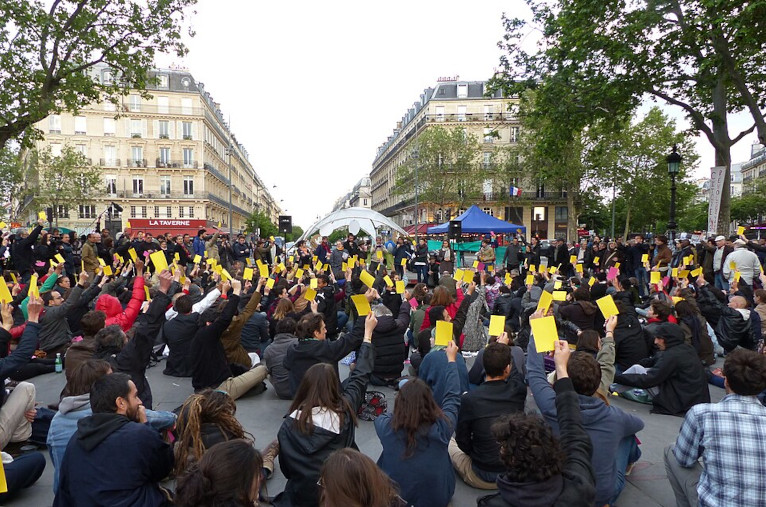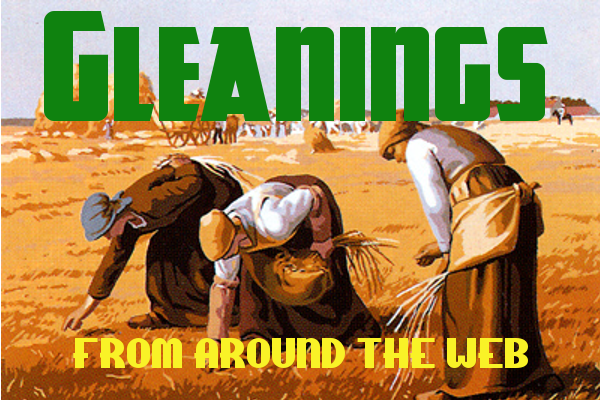This week, Yavor Tarinski writes about the false dichotomy between "realist" incremenatlism and "utopian" escapism, and how activists can combine immediate proposals and demands with long-term goals for social transformation in a way that empowers citizens to shape their own communities.
Then, the LIFT Economy podcast talks with musician and activist Meklit Hadero about how she came to see collective economic models as key the success of musicians and other artists.
Escaping the Trap of ‘Realism’ and ‘Utopianism’
by Yavor Tarinski
There is one thing that the status quo manages to do well – to convince us that achieving radical social change is an unreachable utopia. It presents itself as pragmatic and realistic, as a pillar of stability. Furthermore, it also claims a hegemony on the social imaginary level, as the only imaginable system. This is what Mark Fisher has termed Capitalist Realism – the widespread sense that not only is capitalism the only viable political and economic system, but also that it is now impossible even to imagine a coherent alternative to it.
How Solidarity Economies Can Reshape the Music Industry
by LIFT Economy
What if the way we support artists is broken, but the answers have been with us all along? Today on Next Economy Now, we’re joined by Ethiopian-American vocalist, composer, and cultural activist Meklit Hadero to explore how migration shapes music, why the traditional music industry is collapsing, and how collective economic models could be the key to artists' survival.
Five Years In, Philly’s Kensington Corridor Trust Is Building Momentum
Next City — At the top of Kensington Corridor Trust’s structure is the actual neighborhood trust, also known legally as a perpetual purpose trust. Under the model, the trust is governed by a trust stewardship committee, which in this case consists of nine members elected from residents and local business owners within the trust’s catchment area. The trust entity holds the deeds to the properties in the portfolio, and the trust stewardship committee makes major strategic decisions like setting rents, determining what types of businesses to allow as tenants, or defining the catchment area — ensuring major decisions align with the trust’s overall purpose and goals. Last year the stewardship committee extended the catchment area by one more block along Kensington Avenue...
Lessons in Mutual Aid from Black-Led Food Justice Movements
412 Food Rescue — As we celebrate Black History Month, let us honor this legacy by recognizing food security as a fundamental right and a first step toward systemic change. Advocacy, community-based solutions, and policy reform are all essential tools in this fight...
Tech-enhanced deliberation for cooperative decision-making and governance
Arantzazulab — We are very excited to announce a new collaborative initiative between MONDRAGON, DemocracyNext, MIT Center for Constructive Communication (CCC) and Arantzazulab to learn and explore new ways to democratise workplace decision-making. In 2025, we will be exploring ways to put this in practice in MONDRAGON’s cooperatives to learn how the principles behind citizens’ assemblies – sortition (randomly selecting decision makers), deliberation, and rotation – can be applied in the context of cooperative decision making and governance. The goals are to help lead to a more engaged workforce and membership, as well as to result in better, more informed, and legitimate decisions in times of complexity...
Minneapolis’ May Day Café open again as worker-owned cooperative
FOX 9 (YouTube) — A mainstay in the Powderhorn neighborhood of south Minneapolis has reopened under new ownership – the worker-owners who are now running it as a co-op. FOX 9’s Maury Glover has the story...
New on our Youtube Channel
Why Worker Co-ops are Better for Music Teachers
Like what you find on GEO?
Make a Donation Today!
Your tax-deductible contribution ensures that GEO can continue to provide independent grassroots content about the cooperative and solidarity economy movements.
Got something to say?
Let us know. Send your comments, suggestions, rants and article submissions to editors@geo.coop.
Follow us on Social Media
Mastodon: social.coop/@GEO_Collective
FB: facebook.com/GEOCollective
Twitter: twitter.com/@GEO_Collective
Instagram: instagram.com/grassrootsecon
Our mailing address is:
Grassroots Economic Organizing
P.O. Box 115
Riverdale MD 20738-0115




